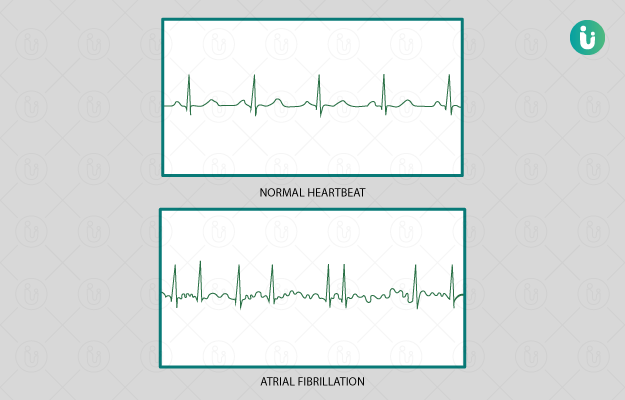What is bradycardia?
Bradycardia or a slow heart rate is a condition when the heart of a person beats less than 60 times per minute. In the case of a healthy adult, the heart rate should be between the range of 60-100. A slow heart rate is generally seen in athletes and older people. Some young and healthy individuals may also experience bradycardia, which is normal until they start experiencing other symptoms.
Here is the complete detail about heart disease treatment.
(Read More - Mitral valve repair surgery)
What are its main associated signs and symptoms?
Commonly seen signs and symptoms associated with bradycardia are:
- Weakness.
- Tiredness.
- Fainting.
- Nausea.
- Sweating.
- Confusion.
- Breathing difficulty.
- Reduced blood pressure.
- Mild to severe chest pain.
Sometimes you may not experience any symptoms at all.
(Read More - Heart valve replacement)
What are the main causes?
There are two causes for the developing bradycardia. They are:
- Intrinsic causes (i.e., due to internal factors):
- Increasing age.
- Heart attack.
- Autoimmune diseases (when the immune system attacks healthy tissues) like systemic lupus, rheumatoid arthritis and scleroderma.
- Muscular dystrophy (wasting).
- Infection of the heart.
- Surgeries of the heart.
- Sleep apnoea (breathlessness during sleep).
- Genetics.
- Sinoatrial node (nerve fibres responsible for a regular heart rhythm) dysfunction.
- Extrinsic causes (i.e., due to external factors)
- Coughing.
- Vomiting.
- Passing of urine.
- Passage of stool.
- Medications like beta blockers, calcium channel blockers (both for treating high blood pressure) and anti-arrhythmic drugs (for a loud, irregular and rapid heart rate).
- Hypothyroidism (low thyroid hormone levels in the body).
- Reduced body temperature (hypothermia).
- Injury to the brain, spinal cord or nerves.
- Imbalances in potassium levels.
(Read More - Aortic valve repair)
How is it diagnosed and treated?
Your doctor will take a detailed history of your medical conditions and medicines that you are taking to find the cause and conduct a physical examination in those who are suspected to have a slow heart rate. To confirm bradycardia, your doctor will carry out a specialised test called electrocardiogram (ECG), which detects any abnormalities in the heart rhythm. Other tests may also be conducted, e.g., blood test (to detect hypothyroidism or electrolyte imbalance), sleep apnoea test, electrophysiology test (to know the exact cause of irregular heartbeat) and a stress test (to find the response of heart in work or stress).
Bradycardia could be identified during routine check-up even if you did not experience any symptoms previously.
Treatment is usually not given to those without any associated symptoms. Symptoms of bradycardia vary depending upon the cause. If a slow heart rate is due to a certain drug, either the dose is reduced or completely stopped. In the case of a sinus node dysfunction, a pacemaker is used to normalise the heart rate.
(Read More - Homeopathic treatment for heart attack)

 OTC Medicines for Bradycardia (Slow Heart Rate)
OTC Medicines for Bradycardia (Slow Heart Rate)















